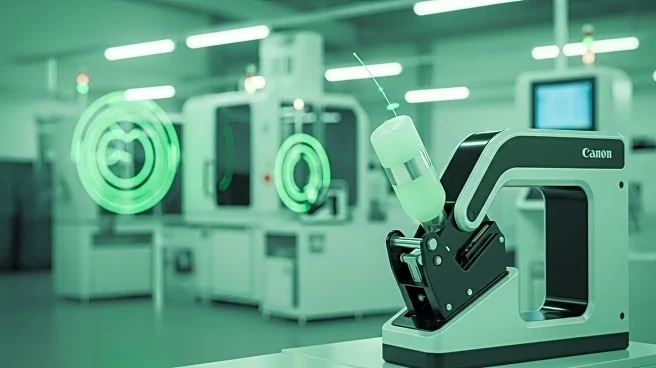What is the story about?
What's Happening?
Henkel and Dow have announced a strategic collaboration aimed at integrating CO₂-reduced raw materials and renewable electricity into Henkel's hotmelt adhesive production processes. This initiative targets the packaging and consumer goods industry, with the goal of reducing the carbon footprint of products by 20 to 40%, depending on the product line. Jenna Koenneke, Sustainability Director at Henkel Adhesive Technologies, emphasized the importance of this collaboration in driving industrial sustainability. The partnership leverages Dow's material science innovations to scale CO₂-reduced solutions across Henkel's adhesive portfolio. The program currently covers raw material supplies for Henkel in Europe, with plans to expand to North America. This collaboration aligns with Henkel's climate targets to reduce Scope 3 emissions by 30% by 2030 and 90% by 2045, as well as Dow's decarbonization strategy.
Why It's Important?
The collaboration between Henkel and Dow is significant as it addresses the growing demand for low-carbon products in the market. By reducing the carbon footprint of adhesive products, the partnership contributes to the broader industry goal of achieving net zero emissions. This initiative not only supports Henkel's and Dow's sustainability targets but also sets a precedent for value chain partnerships in accelerating climate solutions. The reduction in emissions is crucial for meeting global climate goals and demonstrates leadership in industrial sustainability. The collaboration showcases how integrating renewable resources and innovative materials can lead to substantial environmental benefits, potentially influencing other companies to adopt similar practices.
What's Next?
Henkel and Dow plan to expand their collaboration to North America, further broadening the impact of their sustainability efforts. They will present their progress at K2025 in Düsseldorf, where they will host a joint session titled 'Success story: Reducing product carbon footprint in practice.' This event will explore how collaboration across the value chain can enable scalable climate solutions. The ongoing partnership is expected to continue driving investments in low-carbon technologies, encouraging other industry players to follow suit. As the program develops, it may lead to new innovations and strategies for reducing emissions in other sectors.
Beyond the Headlines
The collaboration between Henkel and Dow highlights the ethical responsibility of corporations to address climate change through sustainable practices. By prioritizing carbon reduction, these companies are setting an example for corporate environmental stewardship. This initiative may also influence regulatory policies, as governments could look to such partnerships as models for industry standards. The long-term impact could include shifts in consumer preferences towards more sustainable products, driving further innovation in green technologies.















